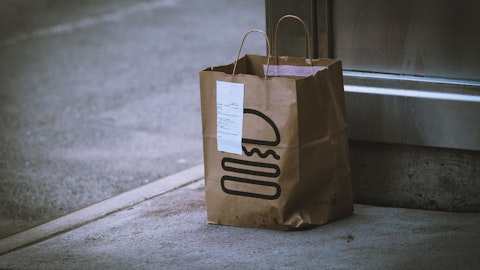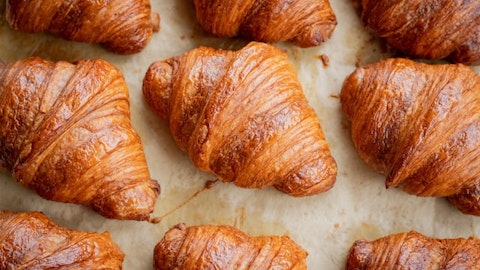Ryals McMullian: Yes. We’ve actually talked a little bit about this before, but I’m glad you asked. We can put a finer point on it. So, the wonder share gains are largely going to be in the sandwich buns and roll segment, where we’ve actually hit some unit share highs with our focus on and execution with our Wonder Bread program. You still caught another holiday in that quarter with Labor Day, our partnership with the USO, et cetera. So, that accounts for a lot of the wonder share increase, which we’re really happy to see because before we bought the Wonder brand, we didn’t have a national sandwich bun and roll brand that we could compete with across the country, right. But we do now. We’ve really made some nice progress there from a share standpoint.
On the Nature zone side. As we’ve said before, remember, the segment of the portfolio that is most susceptible to private label tradedown is that traditional loaf category, that Nature zone is a big player in. While we’re number one and we have the number one skew and all that, which is great. It is the least differentiated piece of the portfolio and therefore more susceptible excuse me, to private label trade down. So that accounts for the drop there. Having said that, the relative performance of Nature zone has been quite good on a relative basis. I know it’s been down and pressured. But on a relative basis, we’re pretty pleased with where we are and we expect the trends to continue to improve as we kind of come out of this pressured consumer cycle.
Jim Salera: Great. That’s all very helpful. Maybe one more question on kind of the share dynamics. I know, we will see when consumers trade channels from grocery to mass that they’ll also trade down to private label as kind of a manifestation of that value-seeking behavior. Do you anticipate, and I know this is a little bit harder to call, but just kind of hydraulically when the consumer comes back to grocery from mass, that they’ll also shift back up to branded? Or is it a slower transition where they come back to grocery but still buy private label?
Ryals McMullian: No, I think you spot on as a matter of fact, if you look at private label in grocery. So, x mass channel, private label is still losing share. And that’s been a trend, I think, pretty much all year, trying to remember back, but I’m pretty sure that’s been the case all year. The private label trends have really been centered in the mass channel. So, to the extent that consumers that are still shopping in grocery are still shopping more premium, they’re still shopping more differentiated, et cetera, and less private label. Those that have shifted channels to mass, you’re correct, are looking more at private label. But I will also tell you that the private label share gains in mass are also coming down. I mean, they’re still up, but the gains are starting to moderate.
And furthermore, our overall share in mass has been improving all year. I mean, we were down 80 bps in the first quarter, 30 bps in the second, and only 10 bps in the most recent. So again, another indicator, these trends are starting to reverse themselves and get better, which is very encouraging.
Jim Salera: Great. Thanks for the color, guys. I’ll pass it on.
Ryals McMullian: Okay, thanks.
Operator: We’re showing no further questions in queue at this time. I’d like to turn the call back to Ryals McMullian for closing remarks.
Ryals McMullian: All right. Thanks, Liz. Just want to thank everybody for taking time today, and joining us for questions. As always, we appreciate your interest in our company, and we look forward to speaking with you in February. Take care.
Operator: This concludes today’s conference call. Thank you for participating. You may now disconnect.
Follow Flowers Foods Inc (NYSE:FLO)
Follow Flowers Foods Inc (NYSE:FLO)
Receive real-time insider trading and news alerts




